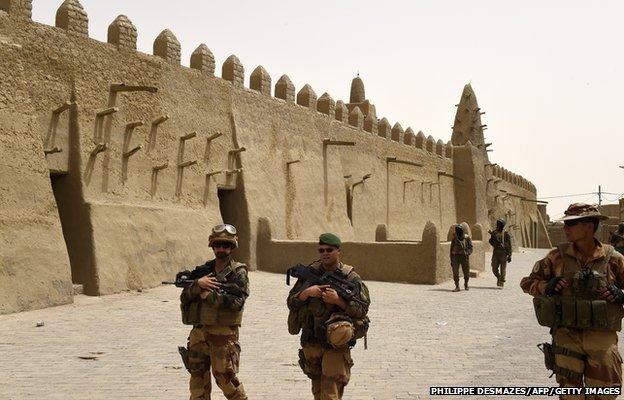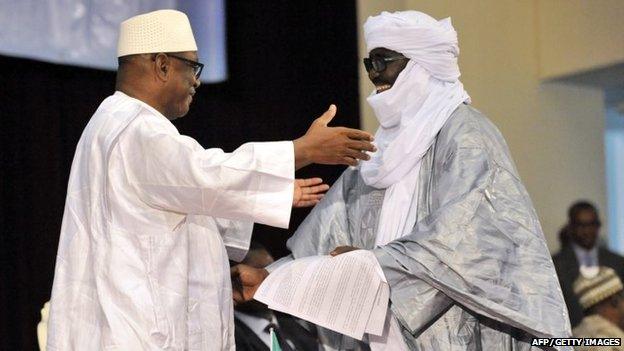Mali's Tuareg rebels sign peace deal
- Published

French troops patrol Timbuktu, that was seized by Tuareg rebels, then Islamist fighters, in 2012
Rebels in Mali have signed a peace deal with the government, offering partial autonomy to the north of the country.
Tuareg-led rebels had refused to sign an initial peace agreement last month, but came on board after their demands were met by the government.
Tuaregs seized part of northern Mali, including Timbuktu, in 2012.
But the area was then taken over by Islamist fighters linked to al-Qaeda, until they were removed in a French-led military operation in 2013.
Mali has seen four uprisings since it won independence from France in 1960.
Tuareg and Arab groups in the north - an area rebels call Azawad - say they are ignored by the more prosperous south.
Azawad is sparsely-populated but includes the historic cities of Timbuktu and Gao.

Mali's president Ibrahim Boubacar Keita embraced an Azawad representative after the deal was signed
In the wake of the most recent uprising, Tuareg groups called for more concessions from the government in Bamako.
The peace agreement, brokered by Algeria, was not signed until those concessions were granted.
New security plans as well as a development programme for the Azawad region will now be agreed. On Thursday, the government dropped arrest warrants against rebel leaders.
The government has also said it is happy to devolve more authority to the region, but not to give it full autonomy.
"Hand in hand, let us make Mali better, more brotherly, more united than ever," president Ibrahim Boubacar Keita said at a ceremony in Bamako. "Long live a reconciled Mali! Long live peace!"
Northern Mali continues to be hit by violence and Islamists have made occasional gains in the region. According to the UN, close to 140,000 Malian refugees continue to live abroad, external.
Since being deployed two years ago, 49 people have died while working for the UN peacekeeping mission in Mali.